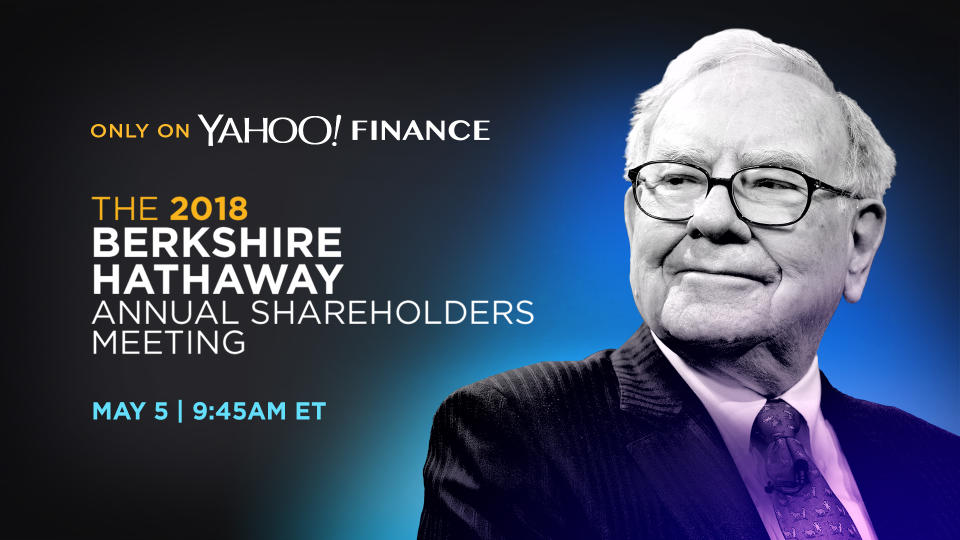Warren Buffett: Good habits may be more important than IQ
Good habits might be more important than being smart.
In an exclusive interview this year with Yahoo Finance’s Editor-in-Chief Andy Serwer, Berkshire Hathaway CEO Warren Buffett talked about how critical it is for young people to establish good habits and start saving early.
When asked if young people — who are often saddled with student loan debt and high rents — should be expected to start saving and investing, Buffett said, “I think the habits you develop are terribly important. They may be more important than IQ or something.”
For Buffett, establishing good habits — whether it’s saying “please” and “thank you” or saving 10% of each paycheck in a retirement account — is a major key to success.
In a 1998 speech to students at the University of Florida, Buffett said, “Chains of habit are too light to be felt until they are too heavy to be broken.” He said it in the context of falling into destructive behavior patterns, like alcohol abuse, noting that by the time people are of a certain age, it’s too late to change them.
When you’re young, though, you have more control: “But at your age, you can have any habits, any patterns of behavior that you wish. It is simply a question of which you decide.”

Buffett himself is a case in point. In his interview with Yahoo Finance, he shares how he got into the habit of saving early.
“I started selling those Cokes that I bought, six for a quarter, and sold them for a nickel each around the neighborhood. And I did all kinds of things to save money, and that’s how I got my $114 together by the time I was 11. But I enjoyed saving, I enjoyed investing.” Buffett bought his first stock at age 11 with that $114 in 1942, and says that if he had invested that money in the S&P 500 index and reinvested the dividends and just let it sit, he’d have $400,000 today.
Another oft-quoted Buffett-ism: “Don’t save what is left after spending; spend what is left after saving.” That’s another way of saying pay yourself first. It’s a simple strategy, often touted in personal finance and retirement planning, and works best if you start young. It means save a portion of each paycheck first and automatically — before you even factor in budget and monthly expenses.
Even if you save just $10 a week, it’s a start. Say your monthly income is (after-tax) $3,500; you can set aside $150 of that for retirement (or a percentage of your pay in a 401(k)) and $50 for an emergency fund. The remainder goes toward other expenses, like rent or mortgage, food, utilities, paying down debt, etc. And any money you have left over is yours to spend on whatever you want.
It’s a good rule of thumb that prioritizes paying yourself first — your future self will thank you.
Watch Warren Buffett LIVE at the 2018 Berkshire Hathaway Annual Shareholders Meeting exclusively on the Yahoo Finance app and desktop. Coverage begins May 5 at 9:45am ET. Set a reminder now!


